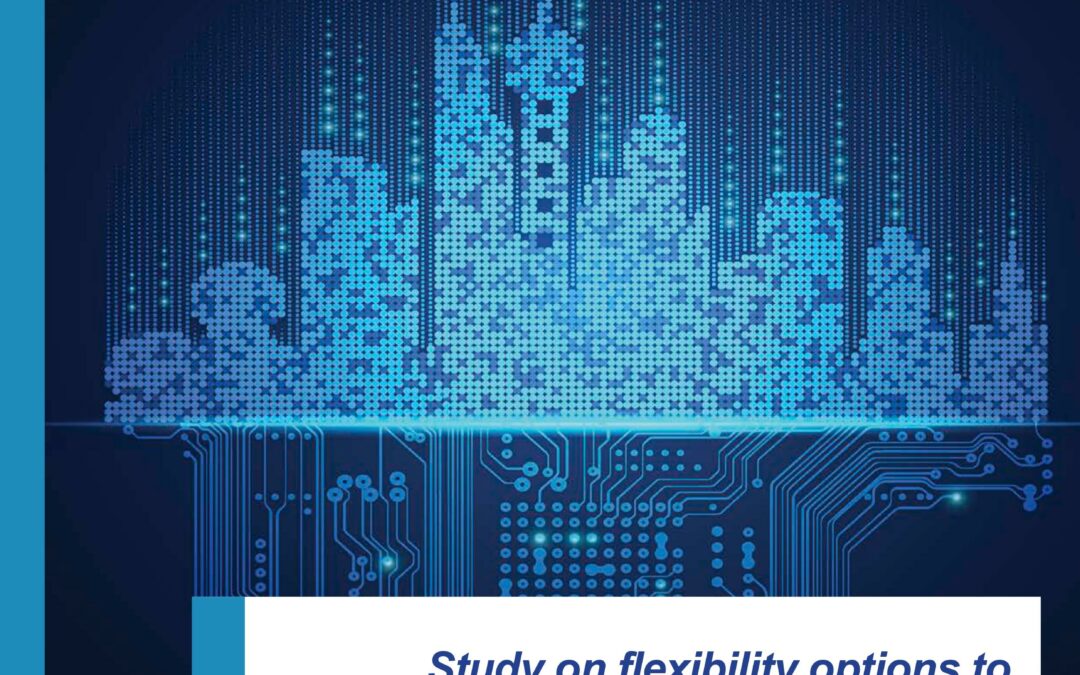The Energy Community Secretariat has selected Trinomics and Artelys for the study of flexibility options to facilitate the integration of renewable energy sources and support decarbonization in the Energy Community towards 2040. The quantitative analysis was conducted by Artelys using the energy market model Artelys Crystal Super Grid. Future flexibility needs are analyzed and cost-optimal portfolios of flexibility solutions are determined considering a wide range of scenarios in terms of the deployment of variable renewable energy sources (vRES), coal-fired power generation phase-out and levels of interconnection capacity. All Contracting Parties (except Georgia) were modelled jointly with the EU power market area. The study highlights that no additional investments into flexibility would be needed by 2030 even in the most ambitious vRES deployment scenario. It also emphasizes that cross-border integration of power networks and markets decreases the need for investments in flexibility solutions in 2040 and drives down electricity system costs and CO2 emissions.
Recent Posts
- Artelys Knitro 15.0: New Tools for Your Large-Scale Models
- Dynamic tariff models in electricity retail market
- Artelys Introduces Future Sight: a Visualisation Tool Supporting the Energy Transition
- Supercharging Optimisation: How Artelys, FICO and NVIDIA cuOpt Join Efforts to Scale Up Energy System Optimisation
- A general coupled morning–evening traffic equilibrium model with rideshare, ride-hailing, and public transit services
Archives
- June 2025
- May 2025
- April 2025
- March 2025
- February 2025
- January 2025
- December 2024
- November 2024
- September 2024
- August 2024
- July 2024
- June 2024
- May 2024
- April 2024
- March 2024
- January 2024
- December 2023
- November 2023
- October 2023
- September 2023
- August 2023
- July 2023
- June 2023
- May 2023
- April 2023
- March 2023
- February 2023
- January 2023
- December 2022
- November 2022
- October 2022
- September 2022
- July 2022
- June 2022
- May 2022
- April 2022
- March 2022
- February 2022
- January 2022
- December 2021
- November 2021
- October 2021
- September 2021
- August 2021
- July 2021
- June 2021
- May 2021
- April 2021
- March 2021
- February 2021
- December 2020
- November 2020
- October 2020
- September 2020
- August 2020
- July 2020
- June 2020
- May 2020
- April 2020
- February 2020
- January 2020
- December 2019
- November 2019
- October 2019
- September 2019
- July 2019
- June 2019
- April 2019
- March 2019
- February 2019
- January 2019
- December 2018
- October 2018
- August 2018
- July 2018
- June 2018
- May 2018
- April 2018
- March 2018
- February 2018
- January 2018
- November 2017
- October 2017
- September 2017
- August 2017
- July 2017
- February 2017
- November 2016
- October 2016
- August 2016
- July 2016
- May 2016
- April 2016
- January 2016
- November 2015
- October 2015
- September 2015
- March 2015
- June 2014
- October 2013

Recent Comments